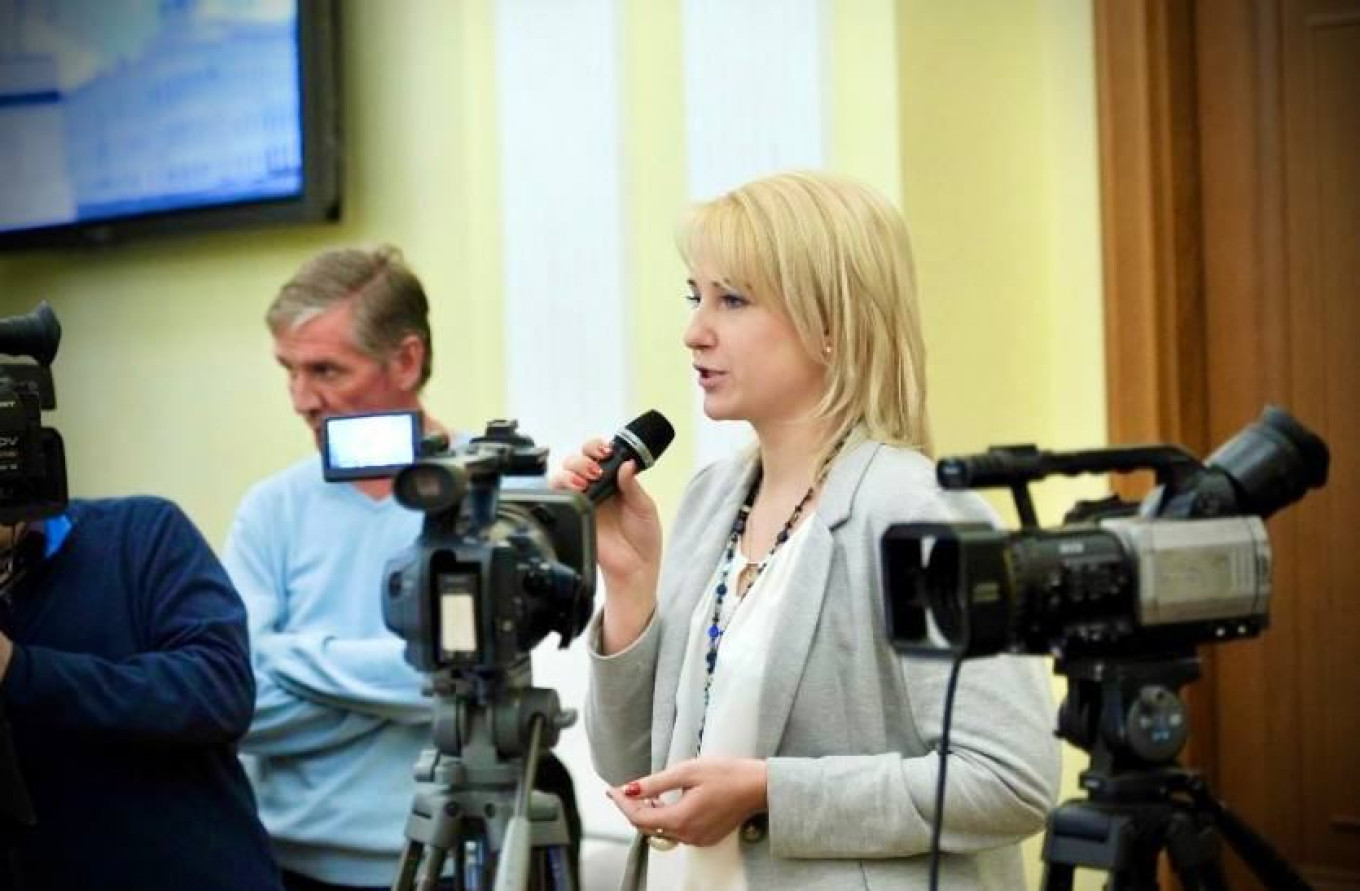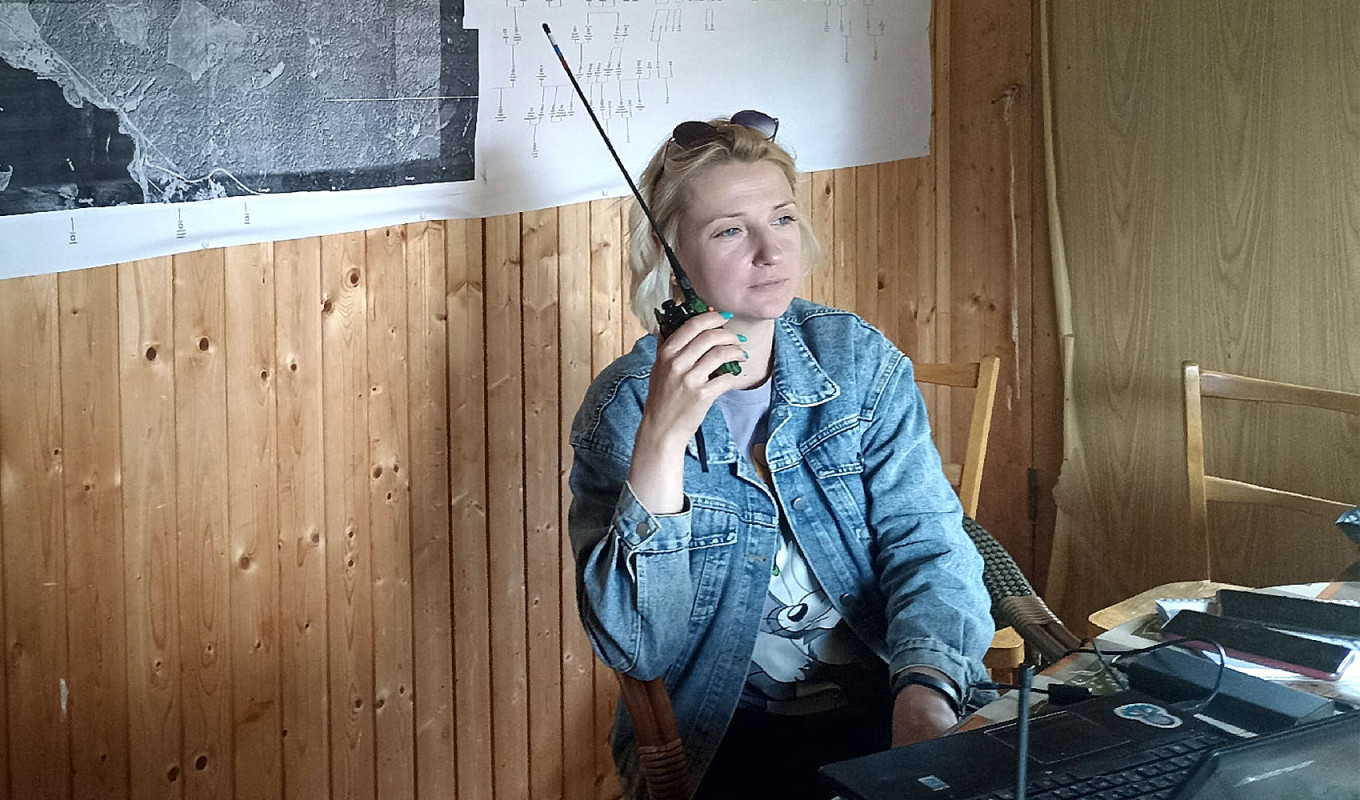President Vladimir Putin is yet to formally announce his plans to run for re-election next year, but he might already have an unlikely potential competitor in Yekaterina Duntsova, a journalist from the Tver region who announced her bid for the presidency last week.
“Why did I make this decision? I love our country, I want Russia to be a thriving democratic and peaceful state. But right now our country is moving in a completely different direction,” Duntsova said in the announcement posted on social media Thursday.
“I understand that many right now want to wait it out…but we need to act…Let’s at least try! Let’s try to win this ‘election’!”
A 40-year-old single mother of three with no prior experience in Russia’s federal-level politics or party affiliation, Duntsova appears to be an unlikely candidate for the post that has been controlled by Putin — now 71 — for over two decades.
But the journalist believes her age, gender and lack of experience in Moscow politics might become some of her greatest assets in a race that is likely to be dominated by older men who have spent decades working in the Kremlin’s shadow.
“I am different in that I am more immersed in local political discourse, in [issues of] local governance,” Duntsova told The Moscow Times. “It is important for me that I live like most people in this country. All of their worries, their problems are near and dear to me.”
Yet as an independent candidate with a pro-peace agenda, Duntsova is likely to face an array of challenges on the path to securing her place in the presidential race.
Russian electoral law first requires Duntsova’s candidacy to be backed by a 500-strong special interest group that must gather in a single place to endorse their nominee.
Duntsova’s team, which plans to hold the meeting in Moscow, doesn’t rule out that it could be broken up by the authorities, she told The Moscow Times.
“We understand full well what could happen. If we are not able to [gather] on the first try, we will try for the second time, and so on,” Duntsova explained.
After the gathering takes place, Duntsova must collect 300,000 unique voter signatures from at least 40 regions of Russia and submit the list to the Central Electoral Commission for review.
“I already have several people who told me they are ready to help with establishing headquarters in various cities…One of the first ones were people from Krasnoyarsk, the city where I was born, and I am particularly happy about that,” Duntsova said in a phone interview.

Born in Siberia, Duntsova built her journalism career in the historic town of Rzhev located some 230 kilometers west of Moscow.
Though she notes that she has “always been immersed in politics” through her profession, Duntsova made her first foray into political activism in 2017 by participating in a local grassroots campaign for the return of direct mayoral elections in Rzhev.
“That’s when I felt the need to do something more than just observe [the events] as a journalist,” Duntsova recalled.
In 2019, Duntsova was elected to Rzhev’s City Duma. This experience taught her the vital importance of improving local self-governance across Russia — a central piece of her campaign platform.
“The first impression about the government is formed right at that [local] level,” said Duntsova. “When people say that the entirety of the government is bad, all deputies are stealing … all of this comes from their experience with the municipal government.”
Russia’s liberal opposition, which is almost entirely in exile, is yet to come up with a single strategy for the country’s first wartime presidential election. While some believe a single candidate should represent the fractured movement, others argue for boycotting the vote altogether.
Duntsova — a seeming outsider to the mainstream anti-Putin movement — does not support either of these camps, instead hoping that more independent candidates will join the race and rally their supporters to come out to vote.
This stance has already fueled speculation that she could be a Kremlin-endorsed spoiler candidate.
“I am definitely not a spoiler. This was my decision and it will be executed up to the point of my abilities,” said the candidate-to-be.
“I am aware of the opinion that the presidential election needs to be boycotted. I am very happy that there are no people [with this opinion] in my circles…The more candidates — including those with a pro-peace agenda — decide to run, the better,” Duntsova added.

In a conversation with The Moscow Times, Duntsova singled out “democratic values, peace and freedom to political prisoners” as key pillars of her campaign.
Duntsova — who also has a law degree — alluded to disapproving of the Kremlin’s invasion of neighboring Ukraine by doubling down on using the word “peace.”
Despite her statements being carefully measured to comply with Russia’s strict censorship laws that prohibit labeling the invasion of Ukraine as “war,” Duntsova was summoned on Monday to the prosecutor’s office to discuss her campaign and attitude toward Russia’s actions in Ukraine, Agentstvo reported.
At the end of the meeting, the candidate-to-be was reportedly asked to sign a document confirming ownership of her account on the VKontakte social media network.
Last week, Duntsova inaugurated her campaign’s Telegram channel with a post dedicated to artist and musician Alexandra Skochilenko, who was sentenced to seven years in prison for swapping price tags at a St. Petersburg supermarket with anti-war stickers.
“I am appalled by the fact that it is women who are facing criminal prosecution in such numbers,” Duntsova told The Moscow Times. “I believe all political prisoners are being jailed illegally but I feel particularly sorry for the women.”
When asked whether she is scared to wage a political campaign in a country where even the swapping of price tags can land one in prison, Duntsova said that she has already gone through all five stages of grief over her existence in Russia and no longer feels any fear.
Her three kids, too, are supportive of her choice, Duntsova said, noting that her 19-year-old daughter is particularly keen to help with the campaign.
“I want to show with my example that one can go and resist. I want to give hope to other people,” said Duntsova.
“I am not scared because — most importantly — my family and loved ones are supporting me. They are ready, so I am ready too.”